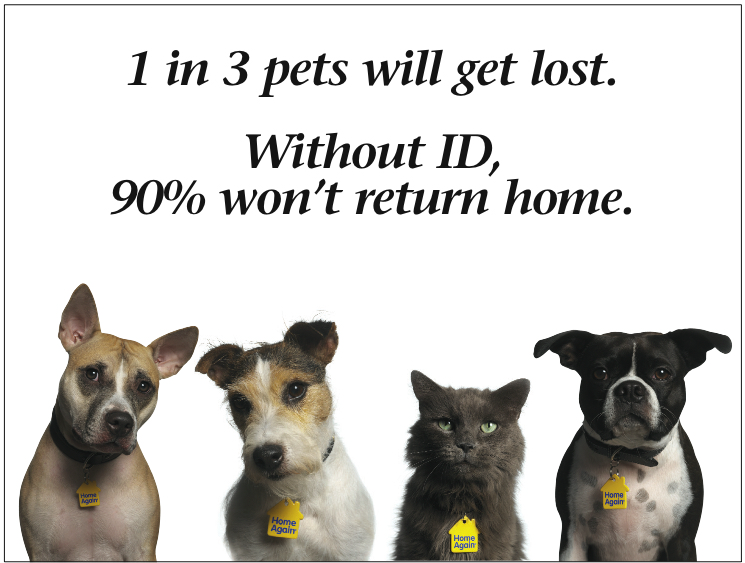Microchips Are A Necessity – Does Your Pet Have One?
 Millions of pets become lost each year. In fact, 1 of 3 pets will go missing sometime in their lifetime. Tragically, few are reunited with their owners. The most recent information reports that only 15-20% of dogs and less than 2% of cats are ever reclaimed by their owners. One of the ways to increase the chances of finding your lost pet is having it microchipped. In Illinois, it is a state law that all pets must be microchipped.
Millions of pets become lost each year. In fact, 1 of 3 pets will go missing sometime in their lifetime. Tragically, few are reunited with their owners. The most recent information reports that only 15-20% of dogs and less than 2% of cats are ever reclaimed by their owners. One of the ways to increase the chances of finding your lost pet is having it microchipped. In Illinois, it is a state law that all pets must be microchipped.
A microchip is about the size of a grain of rice. It consists of a tiny computer chip housed in a type of glass made to be compatible with living tissue. The microchip is implanted between the pet’s shoulder blades under the skin with a needle and a special syringe. The process is similar to receiving routine vaccinations and most pets don’t even react when the microchip is implanted. Because the microchip is biocompatible, the pet shouldn’t experience any adverse reactions. The microchip provides a safe, permanent, and effective form of identification.
Microchips are read by a scanner that produces an electromagnetic field that energizes the microchip. The microchip is encoded with a unique identification number that is individual to your pet. Most shelters, veterinary offices, animals control offices, and police stations have access to the scanners.
The microchip is only as good as its registration, so registering your pet in a pet recovery database is the most important step in the microchipping process. Unfortunately, pet owners forget or don’t take the time or make the effort to register their pet. When an unregistered pet enters and animal control facility the pet could be adopted by another person or group, or the unthinkable could happen. Because unregistered pets are difficult to trace back to their owners these pets have a limited time to be reunited with their owners. Unclaimed pets take up unnecessary resources and cost taxpayers and donors an average of $120 in kennel fees. Remember, a microchipped pet has a better chance at being reunited with its owner but only if the pet is registered in a pet recovery database.
No method of identification is perfect and microchipping is not a GPS device. The best thing you can do is to protect your pet is to be a responsible pet owner. Keep current identification tags on your pets at all times, consider microchipping as reinforcement, and never allow your pet to roam free. If you dog does become lost, more identification can increase the odds of finding your beloved companion.
